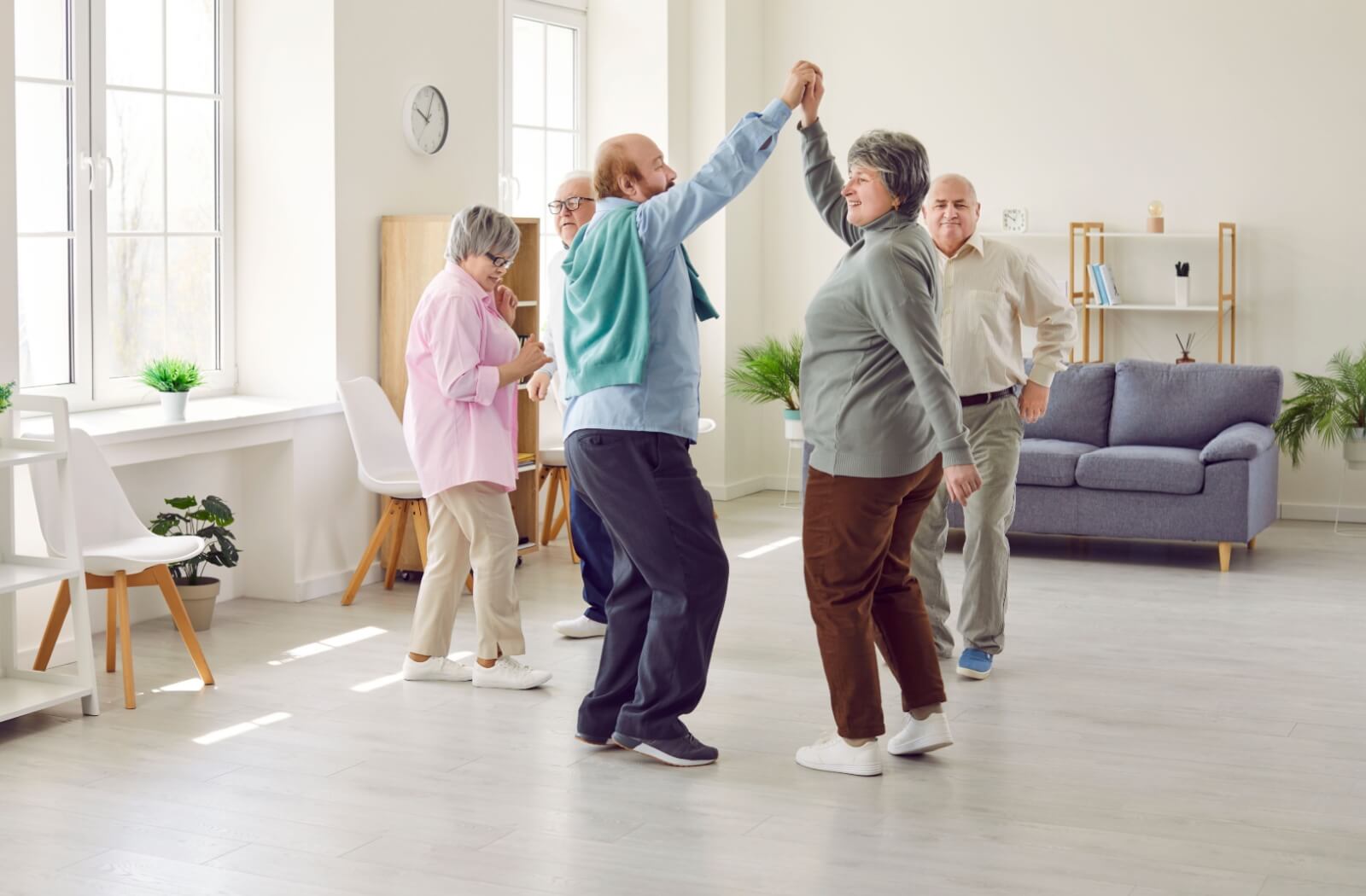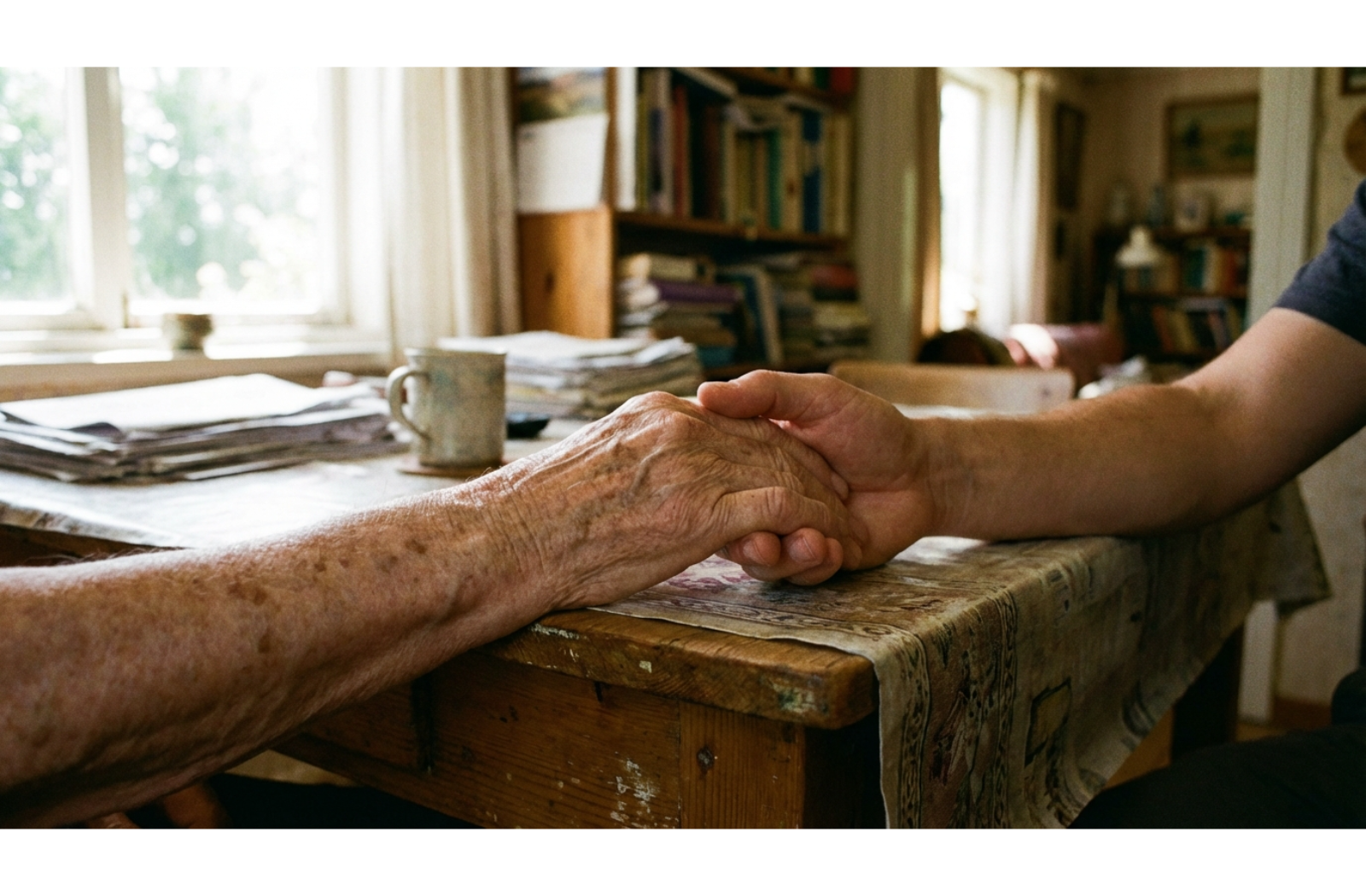Overcoming Common Misconceptions About Assisted Living
- Posted on
- By Mira Vie Senior Living

What does “assisted living” mean to you? For many people, the phrase is associated with a loss of personal freedom, antiquated living spaces, or a lack of dignity and autonomy. The reality is that modern senior living communities are nothing like these common misconceptions.
To overcome common misconceptions about assisted living, it’s important to understand what these misconceptions are and how they’re untrue. Common misconceptions about assisted living include:
- Assisted living and nursing homes are the same thing
- You lose your independence in assisted living
- Assisted living is too expensive
- Assisted living increases isolation
- You only need assisted living if you’re sick
The truth is that assisted living presents an opportunity to maintain independence and become a part of a vibrant senior community without sacrificing safety or comfort. Your loved one will receive help with everyday tasks that may be increasingly challenging while retaining their dignity and who they are.
What Is Assisted Living?
Assisted living communities are exactly what they sound like: communities that exist to support seniors in their activities of daily living, such as dressing, cooking, and managing medication.
Assisted living communities combine housing, daily care, and social engagement opportunities within a single environment. This provides seniors with a safe and enjoyable life where they’re empowered to retain their independence.
Common Misconceptions About Assisted Living
Let’s address some commonly held misconceptions about assisted living.
Assisted Living & Nursing Homes Are the Same Thing
A common perception is that assisted living and nursing homes are the same, often imagining sterile environments and medical beds.
The Truth About Assisted Living
Assisted living communities are distinct from nursing homes. While nursing homes cater to individuals requiring round-the-clock medical care due to chronic conditions or disabilities, assisted living focuses on providing necessary support while fostering independence.
Residents enjoy private apartments or suites, making these spaces feel like home. Residents also receive help only in areas where they need more support, like cooking or medication reminders.
You Lose Your Independence in Assisted Living
Another widespread myth is that assisted living paves the way for the loss of personal freedom and independence, a belief that stems from dated stereotypes.
The Truth About Assisted Living
The purpose of assisted living is to preserve independence. Your loved one controls their day. Whether they want to participate in a group fitness class, catch up with friends over coffee, or enjoy quiet reading on the patio—they decide how to spend their time.
Assistance is never forced on anyone, but it’s always available when needed.
Assisted Living Is too Expensive
Many believe that assisted living communities are financially draining, making them an unrealistic option for most families.
The Truth About Assisted Living
Assisted living is undoubtedly a financial commitment, but it can be comparable to the costs of maintaining a home and hiring in-home care. All expenses, such as rent, utilities, meals, transportation, and immediate support, are covered in one predictable monthly cost.
Plus, some states provide financial aid programs or long-term care insurance to alleviate the expenses. So, it’s worth considering the options available so you and your loved one understand how financial support could make assisted living accessible.
Assisted Living Increases Isolation
There’s a common fear that assisted living promotes isolation, with residents confined to their rooms without social interaction.
The Truth About Assisted Living
This particular misconception couldn’t be further from the truth. Assisted living communities serve as centers of social interaction. From group activities to common dining areas and community outings, these places focus on fostering relationships and fostering joy.
Despite isolation being a common issue among independently living seniors, the social aspects of assisted living often address this problem effectively.
You Only Need Assisted Living if You’re Sick
There’s a belief that assisted living is reserved solely for those who are frail or sick and cannot care for themselves.
The Truth About Assisted Living
Assisted living caters to a broad range of older adults, from those who want a simpler lifestyle to those needing light daily support. Most residents are physically active and socially engaged, with their community acting as a safety net for unexpected moments or minor needs.
However, if your loved one requires assistance in managing a chronic condition like diabetes, assisted living communities can typically help. This diversity in care highlights the value of assisted living for all walks of life.

Why Assisted Living Might Be Your Ideal Option
Assisted living has evolved and is better than it was before. Modern communities approach senior care holistically by simultaneously nurturing physical, mental, and emotional health. The goal is to seek to create an environment where residents feel empowered and supported. A few ways they accomplish this include:
- Personalized care: The staff collaborates with residents to create care plans that meet their needs and preferences.
- Community and bonding: Events, shared spaces, and communal meals allow residents to cultivate lifelong friendships.
- Focus on wellness: Many communities presently offer advanced wellness programs, including fitness classes, nutritious meals, and even meditation or art therapy.
Experience the Joy of Assisted Living
The fact remains that assisted living is about opportunities, not restrictions. It allows seniors to enjoy safety, support, and community while retaining control of their daily lives.
At Mira Vie Senior Living, we create personalized assisted living solutions, letting your loved one benefit from daily help and care while maintaining a strong sense of independence and community. Contact our team today and book a community tour.
Related Articles

Understanding Various Types of Assisted Living Contracts
Key Takeaways Senior living communities offer several contract types, including those with large entrance payments